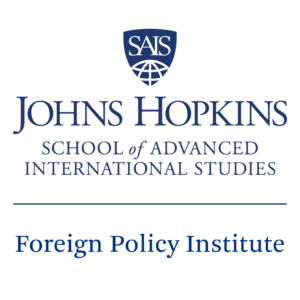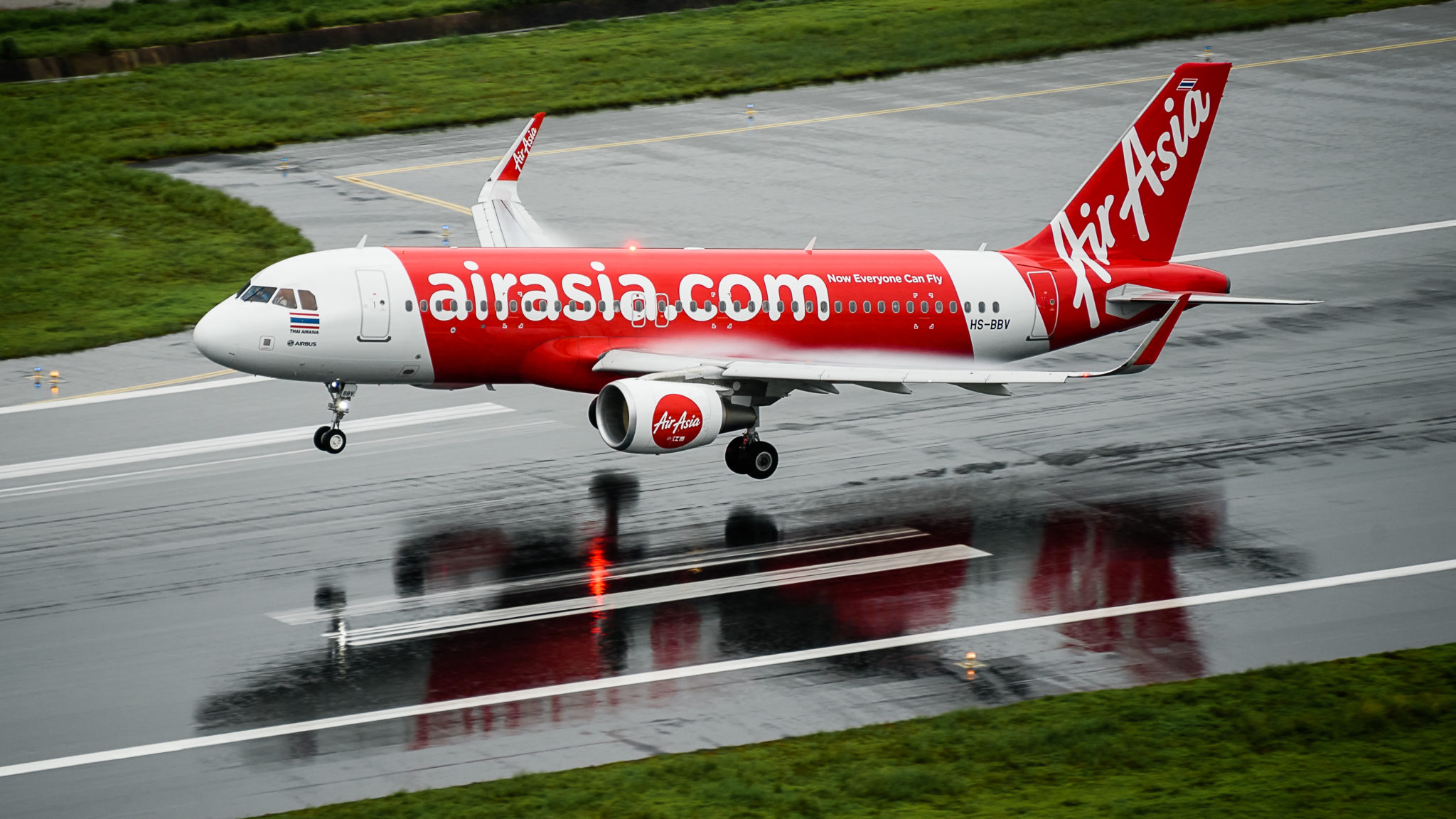
Indian Ocean Business Times Weekly – April 17
Top business stories from countries across the Indian Ocean region: Australia, Bangladesh, Comoros, India, Indonesia, Iran, Kenya, Madagascar, Malaysia, Mauritius, Mozambique, Oman, Pakistan, Seychelles, Singapore, Somalia, South Africa, Sri Lanka, Tanzania, Thailand, UAE and Yemen. Collectively, they account for 35% of the world’s population and nearly 20% of global GDP.
Malaysia Airways/Air Asia – “Merging money-losing state carrier Malaysia Airlines Bhd with budget airline AirAsia Group Bhd is one of the options to ‘save’ them as the Covid-19 crisis batters the industry, Malaysia’s second-most senior minister Datuk Seri Mohamed Azmin Ali told Reuters on Friday,” Reuters/Edge Markets Malaysia reports.
Thailand Contraction – “According to IMF latest projection, Thailand could stand as the worst performer among its Asean peers with a staggering drop of 6.7% of its GDP. Singapore would be the second worst performer with a -3.5% GDP forecast for 2020,” Thailand Business news reports.
India Economy – “The Reserve Bank Governor Shaktikanta Das expects a sharp V-shaped recovery for India as projected by the IMF in 2021-22. Quoting IMF’s projection of 1.9% growth for India in current fiscal, Das said that India is among the handful of countries that will cling on to positive growth. This is the highest in G20 countries as is estimated by the IMF,” Economic Times of India reports.
Singapore Exports – “Singapore’s non-oil domestic exports (Nodx) did the unexpected in March by jumping 17.6 per cent, albeit from a low year-ago base. Economists polled by Reuters were expecting exports to drop 8.9 per cent, with more and more countries enforcing a lockdown due to the Covid-19 outbreak and restrictions to business activity,” Singapore Straits Times reports.
South African Airways – “Regional carrier South African Airways could be one of the first victims of the storm that has hit the global airline industry as it has been denied any further funding by its government owner. The national carrier must now look for other ways to recover from the coronavirus crisis and a local form of bankruptcy protection. SAA’s external debt is guaranteed by the state in the event of the carrier’s collapse,” Business Day reports.
South Africa Economy – “The South African Reserve Bank said on Tuesday that it expects the country’s gross domestic product (GDP) in 2020 to contract by 6.1%, compared with the -0.2% estimated just three weeks ago when the bank’s Monetary Policy Committee (MPC) last met. GDP is then expected to grow by 2.2% in 2021 and by 2.7% in 2022,” The Mail and Guardian reports.
Iran Economy – “The International Monetary Fund (IMF) expects the Islamic Republic’s net debt to reach 33.8 percent of its gross domestic product (GDP) in 2020, up 22.5 percent compared with the previous year. IMF’s report released on Wednesday, April 15, a day after the publication of its World Economic Outlook, says that Iran’s GDP will be about $ 439.2 billion this year. Last year, that figure was nearly $ 491 billion,” Radio Farda reports.
Covid-19 South Asia – “The number of people infected with the coronavirus crossed 22,000 in densely populated South Asia on Friday driven by a rise in cases in India as the tiny Indian Ocean island nation of Maldives locked down its capital. Health officials have warned that the region, home to a fifth of the world’s population, could be the new frontline against the disease because of millions living in packed slums and fragile public health systems,” The Financial Express reports.
Bangladesh Exports – “Apparel exporters shipped goods worth only $194 million during the first half of the current month, down 83.74% from the same month of last year,” Dhaka Tribune reports.
Sri Lanka – “As per the latest findings by the World Bank, Sri Lanka’s economy could contract by as much as 3% this year. The extent to which this would impact businesses however varied from industry to industry, as did the mechanisms that needed to be put in place.
Export Development Board Chairman Prabhash Subasinghe summed up the export industry’s dilemma when he said 2020 earnings forecast for merchandise exports has been reduced by over $7 billion,” DailyFT reports.
Pakistan – “The International Monetary Fund on Thursday said its executive board had approved $1.386 billion in emergency financing to Pakistan to meet balance of payments needed stemming from the novel coronavirus pandemic. The funds, to come from the IMF’s Rapid Financing Instrument, will help Pakistan deal with a decline in international reserves and allow it to fund targeted and temporary spending increases aimed at containing the pandemic and mitigating its economic impact, the IMF said,” Business Recorder reports.
Pakistan Equities – “The Pakistan Stock Exchange (PSX) on Thursday maintained its bullish trend after the market closed at 31,330 points with a gain of 87 points as compared to 31242.19 points on the last working day. A total of 11 million shares worth Rs4.76 billion exchanged hands despite the indices of PSX traded within a narrow range during an early trade. However, the market capitalisation edged up by Rs 50 billion with a total volume of 119,102,323 shares traded in the market today,” The News reports.
India Coronavirus – “Projections based on a recent analysis by researchers at the United Nations University (UNU) show that, in the worst case scenario, 104 million more people in India could fall below the World Bank-determined poverty line of $3.2 a day for lower-middle-income countries. At present, 60 per cent of India’s population, or an estimated 812 million people, live below that poverty line,” Business Standard reports.
Seychelles – “The World Bank has given Seychelles a $6.9 million line of credit that has been transferred into the country’s international reserves, an official said Friday. The governor of the Central Bank of Seychelles, Caroline Abel, told a news conference that as of Wednesday the country’s reserves stand at $488 million, amongst which $435 million can be used,” Seychelles News Agency reports.
Kenya 2021 – “Things are looking gloomy at the moment, but the good news is that Kenya’s economy is expected to rebound next year when it will grow by 6.1 per cent. However, this might be disrupted by the 2022 campaigns. In a new report, the International Monetary Fund (IMF) predicts that the ‘economic forecasts at this juncture are subject to higher-than-usual degrees of uncertainty,'” The Daily Nations reports.
Abu Dhabi Ports – “Khalifa Port’s CSP Abu Dhabi Terminal in the UAE has celebrated its first anniversary handling over 540,000 teu since its soft launch last April. The UAE – China joint venture terminal between Cosco Shipping Ports and Abu Dhabi Ports also operated for 800,000 hours without loss injury time (LTI). The terminal on a 35-year lease agreement started full operations in November last year and has a design capacity of 2.5m tea annually,” Sea Trade Maritime News reports.
UAE/Africa – “The United Nations praised the generous support provided by the United Arab Emirates and its humanitarian efforts to transfer medical and protection supplies to the African continent. In a statement distributed in Geneva, in conjunction with the announcement of the launch of the first United Nations air solidarity flight to transport medical supplies to African countries, the World Food Programme (WFP) affirmed that the United Arab Emirates, through the WHO’s regional logistical centre in Dubai, played a major role in preparing and shipping these supplies,” Logistics Update Africa reports.
Tanzania/Covid-19 – “Tanzania has recorded 29 new Covid-19 cases, the highest single-day jump, raising the tally to 88, the health ministry has said. In a briefing on Wednesday, Health minister Ummy Mwalimu said the new patients are Tanzanians hailing from the commercial hub Dar es Salaam, Mwanza City on the shores of Lake Victoria, and northern Kilimanjaro,” The East African reports.
Africa Jobs – “The coronavirus outbreak could affect a third of the 440 million formal and informal jobs in Africa as lockdowns across the continent deprive people in the world’s poorest continent of the means to make a living, according to McKinsey & Co. Between 9 million and 18 million of the continent’s 140 million formal jobs could be lost as a result of the crisis, McKinsey said in its Finding Africa’s Path report. A further 30 million to 35 million could see a reduction in wages and working hours. One hundred million of the 300 million informal jobs on the continent are at risk, it said,” Bloomberg/Al-Arabiya English reports.
Australia/Covid-19 – “As the coronavirus pandemic continues to spread around the world, some countries’ efforts to slow the spread of infection that have been more successful than others. Both Australia and New Zealand have reported low numbers of coronavirus infections and deaths, compared to other major industrialized countries. As of Friday local time, Australia has reported 6,462 coronavirus cases and 63 deaths, while New Zealand has recorded 1,401 cases and only nine deaths,” Business Insider reports.
GCC Oil/India – “India will divert 19 million barrels of Gulf oil from state-run firms to strategic petroleum reserves (SPRs), skipping direct purchases from producers to help refiners get rid of extra oil as their storage is full, three sources said. India’s decision to divert cargoes meant for state refiners will not soak up excess oil from the market following the demand collapse caused by the coronavirus pandemic, but it will help local companies to avoid demurrage charges at a time of expensive freight,” Reuters/Arab News reports.
Oil Price – “Oil could end the week below $20 a barrel for the first time since 2002 after a wave of gloomy demand forecasts suggested that a deal among the world’s biggest producers to curb output won’t be sufficient to sustain a price rally,” Bloomberg/Gulf News reports.
India Feature – “Each year India celebrates April 5 as National Maritime Day (NMD), when SS Loyalty, the first ship of the Scindia Steam Navigation Company, set sail from Mumbai for the United Kingdom in 1919 and thus created nautical history. The NMD recognises the maritime sector’s contribution to the national economy through the facilitation of trade across the five oceans. While the maritime sector has several stakeholders and players, it is the ‘mariner’ in his merchantman (vessel) that constitutes the cutting edge of ocean trade and provides the connectivity of a several thousand nautical miles,” Hellenic Shipping News reports.
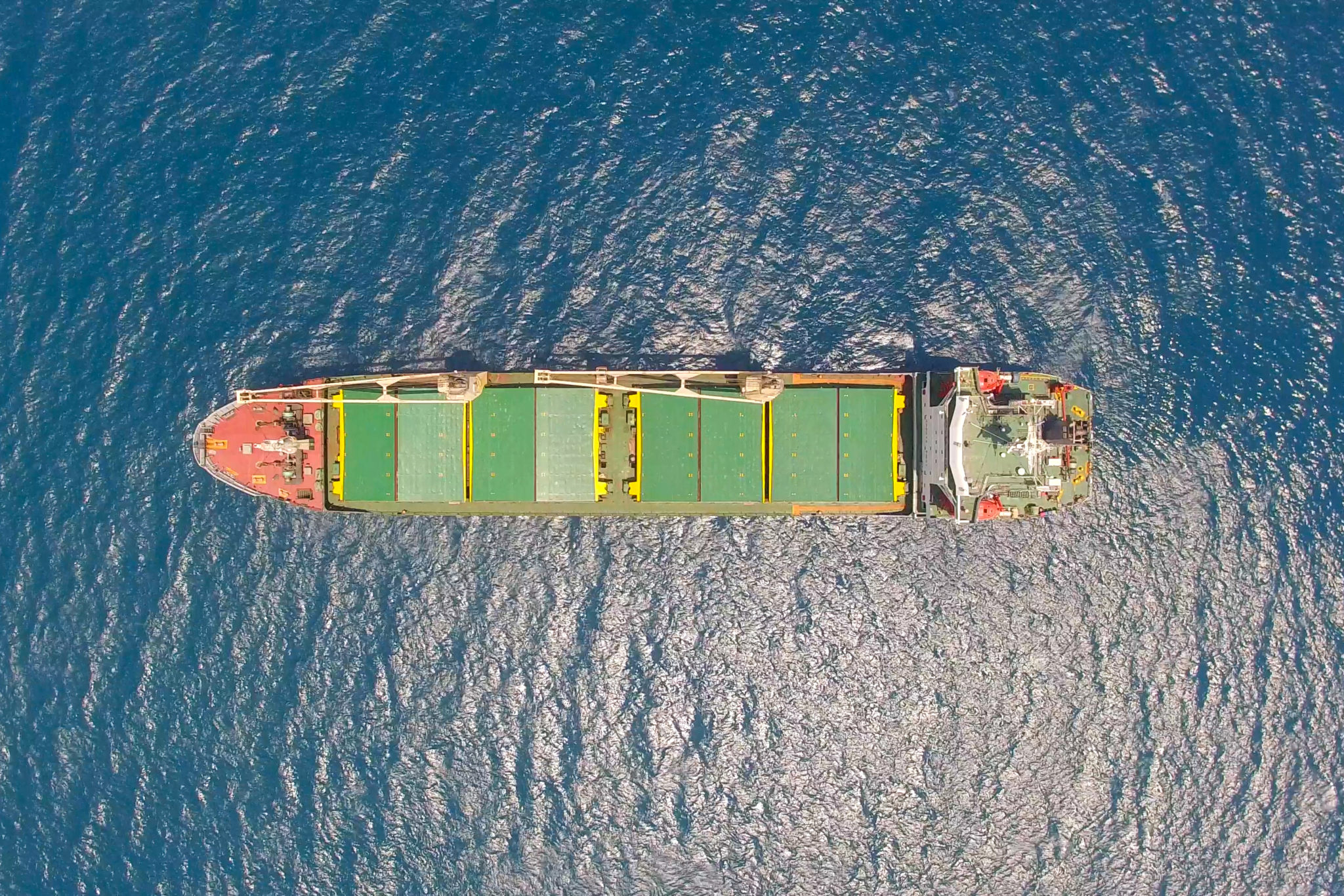
Middle East Business Telegraph Monitor – April 17
The top business/economic stories from the MENA region as reported in the regional and industry press – April 17
Abu Dhabi Ports – Abu Dhabi Ports has zoomed into the dry bulk shipping sector, sealing its first bulk carrier acquisition with remote closing via videoconference,” Splash247 reports.
GCC/Coronavirus – “Countries in the Gulf Cooperation Council are stepping up their use of artificial intelligence tools to halt the spread of the coronavirus pandemic. Governments throughout the GCC have enacted some of world’s strictest measures, including suspending passenger flights and imposing curfews on citizens to put brakes on the number of new cases of Covid-19 that currently total over 2 million (2,064,115) globally, according to Johns Hopkins University data,” CNBC reports.
Etihad Airways – “Abu Dhabi’s Etihad Airways plans to start scheduled passenger services on May 1 under a reduced schedule to remain in place until June 30, subject to the status of United Arab Emirates travel restrictions, the company announced Thursday. Meanwhile, Etihad has revised the launch date of its inaugural service to Vienna from May 22 to July 1. Etihad continues to operate a growing schedule of repatriation flights and special cargo services carrying perishables, pharmaceuticals, and medical supplies. The airline has repatriated nearly 600 UAE nationals on return services,” Aviation International News reports.
Lebanon – “Lebanese Prime Minister Hassan Diab on Thursday said that 98 per cent of depositors will be left unscathed by an economic rescue plan that has been criticised because it proposes to use deposits to cover huge losses. A draft plan that emerged last week provided the most detailed blueprint yet on how Lebanon would try to pull itself from a financial crisis that sank its currency and led to a sovereign default,” The National reports.
Saudi/Ramadan – “Saudi Arabia’s Grand Mufti Sheikh Abdulaziz Al al-Sheikh, the highest religious authority in the country, said that Muslim prayers during Ramadan and for the subsequent Eid al-Fitr feast should be performed at home if the coronavirus outbreak continues, Saudi’s Okaz newspaper reported on Friday,” Reuters reports.
Iran Economy – “The International Monetary Fund (IMF) expects the Islamic Republic’s net debt to reach 33.8 percent of its gross domestic product (GDP) in 2020, up 22.5 percent compared with the previous year. IMF’s report released on Wednesday, April 15, a day after the publication of its World Economic Outlook, says that Iran’s GDP will be about $ 439.2 billion this year. Last year, that figure was nearly $ 491 billion,” Radio Farda reports.
Oil Price – “Oil could end the week below $20 a barrel for the first time since 2002 after a wave of gloomy demand forecasts suggested that a deal among the world’s biggest producers to curb output won’t be sufficient to sustain a price rally,” Bloomberg/Gulf News reports.
Saudi Crude/Asia – “Asian refiners have emerged as the big winners from Saudi Arabia’s latest official selling prices for its oil exports, according to energy analysts at WoodMac. Recently announces selling prices for May reflect the importance of Asian customers it said in a report released on Thursday,” AFP/Arab News reports.
OPEC+ – “Saudi Arabia and Russia are prepared to take further measures jointly with OPEC+ and other producers on oil market if deemed necessary, Saudi Arabia’s Minister of Energy Prince Abdulaziz bin Salman said in a joint statement with his Russian counterpart Alexander Novak after a phone call between the two on Thursday. ‘Our two countries have worked diligently with the other OPEC+ countries and other producers to achieve a historic agreement to stabilize the oil market,’ the statement read according to Saudi state news agency SPA,” Al-Arabiya English reports.
Tunisia – “Tunisia’s foreign currency reserves have risen to 22.3 billion dinars ($7.7 billion), the equivalent of 131 days of imports, official figures showed on Thursday, benefiting from about $1 billion of recent loans and aid to counter the effects of the coronavirus. Foreign exchange reserves were 14.3 billion dinars a year ago, equal to only 83 days of imports, the central bank said,” Asharq Al-Awsat reports.
Africa Jobs – “The coronavirus outbreak could affect a third of the 440 million formal and informal jobs in Africa as lockdowns across the continent deprive people in the world’s poorest continent of the means to make a living, according to McKinsey & Co. Between 9 million and 18 million of the continent’s 140 million formal jobs could be lost as a result of the crisis, McKinsey said in its Finding Africa’s Path report. A further 30 million to 35 million could see a reduction in wages and working hours. One hundred million of the 300 million informal jobs on the continent are at risk, it said,” Bloomberg/Al-Arabiya English reports.

South Korea: The First Covid-19 Election?
Did South Korea just have the first Covid-19 government referendum election?
On Wednesday, South Korea’s liberal ruling party won a landslide victory in a general election, winning the kind of majority not seen in more than three decades. Early analysis points to the high marks President Moon Jae-in received from his government’s handling of the coronavirus crisis.
As AFP reports, “South Korea’s left-leaning ruling party won a landslide victory in Wednesday’s general election, partial results showed, after the coronavirus pandemic turned the political tide in President Moon Jae-in’s favor.” (emphasis mine)
Governments around the world are facing unprecedented challenges to their institutions and leaders, and societies worldwide are asking a basic question: Is our government competent to handle such a monumental moment? The new divide, it seems to me, is not a left-right one or an authoritarian vs democratic one. Rather it might be competence vs incompetence. President Moon’s administration delivered an impressive response to the Covid-19 pandemic in one of the hardest hit countries.
Again, as AFP reports: “Just a few months ago scandals over power abuse and sluggish economic growth threatened the left-leaning president, with critics calling his dovish approach towards North Korea — despite Pyongyang’s abandonment of its nuclear and ballistic missile test moratoriums — unrealistic.” But “the relatively quick and effective handling of the epidemic — it has also exported test kits to at least 20 countries — has been a boon for Moon ahead of the parliamentary elections, largely seen as a referendum on his performance.”
The piece quoted Minseon Ku from Ohio State University lauding President Moon’s “coronavirus diplomacy,” especially his bilateral phone calls with some 20 leaders worldwide and “South Korea’s global recognition” for its handling of the virus.
Major global crises test the mettle of leaders and institutions and, it seems, South Korean voters have give President Moon and the ruling Democratic Party of Korea high marks.
As governments around the world grapple with the Covid-19 pandemic, their societies are watching and asking: is my government up to the task of handling a major global crisis? The answer to that question will reverberate across politics over the next year and likely far beyond.
For a closer look at South Korea’s elections from domestic and regional media sources, take a look at our round-up.

President Moon, Ruling Party Win Landslide in South Korea: Press Coverage
A snapshot of South Korean and regional press coverage of the re-election of President Moon Jae-In – April 16
South Korean Press
Genera Election – “The ruling bloc achieved a sweeping victory in the general election, Wednesday, winning nearly three-fifths of the 300 National Assembly seats. The landslide win has made the Democratic Party of Korea (DPK), and its ‘satellite’ offshoot Civil Together, an unprecedented political presence that will be able to pass any bill without the cooperation of other parties ― except for constitutional revisions that require a two-thirds majority ― a huge boost for the Moon Jae-in administration,” Korea Times reports
Economy – “The landslide victory of the ruling Democratic Party of Korea (DPK) in Wednesday’s general election will give an impetus to President Moon Jae-in’s key economic policies, such as income-led growth, fiscal expansion and control over chaebol, according to economic experts, Thursday. Amid growing concerns over the COVID-19 pandemic’s impact on the economy, the experts said the government will keep trying to play a bigger role after garnering nationwide support,” Korea Times reports.
Politics – “The ruling Democratic Party (DP) of President Moon Jae-in won a landslide in Wednesday’s general elections, securing a solid majority in the 300-member National Assembly with a satellite party. The DP and Citizen Party (CP) won 180 seats, the first time since Korea introduced its current political system in 1987 that any single political group has won three-fifths of the legislature – enough to pass any bills other than a constitutional amendment,” Korea JoongAng Daily reports.
Politics – “This year’s parliamentary elections in South Korea, held amid the COVID-19 pandemic, solidified the dominance of its two major parties but laid bare the deep-rooted regionalism and saw a record number of female candidates taking constituencies. Although electoral reforms led to the overcrowding of the field, with 35 parties putting forward candidates, the race was between the governing Democratic Party and the main opposition United Future Party, and the former came out with an unprecedented sweep of 180 seats out of 300 up for grabs,” Korea Herald reports.
Regional Press
General Election – “South Korea’s left-leaning ruling party won a landslide victory in Wednesday’s general election, partial results showed, after the coronavirus pandemic turned the political tide in President Moon Jae-in’s favor. The country uses a mix of first-past-the-post seats and proportional representation, but even before all the individual constituencies were decided, Moon’s Democratic party had taken 163 seats in the 300-member National Assembly, an absolute majority. Its sister party was expected to win another 17 proportional representation seats — due to be declared later Thursday — for a total of 180,” AFP/Japan Today reports.
General Election – South Korea’s ruling party has secured a landslide victory in the parliamentary elections, in what is viewed as a huge boost to the power of President Moon Jae-in. Data from the National Election Commission yesterday showed that the liberal Democratic Party (DP) and its affiliated Together Citizens’ Party won a combined 180 seats in the 300-member Parliament, a majority that will allow it to push through most Bills. This is the largest majority that any party has won since 1987,” Singapore Straits Times reports.
Economy – “If South Korea’s president can leverage his success fighting the coronavirus to help his party win Wednesday’s elections, it could give him fresh momentum to reshape an economy reeling from the pandemic. Moon Jae-in’s success in containing one of the first flashpoints of the virus outside China has revived his approval ratings and will likely help his Democratic Party of Korea keep control of the National Assembly. The crisis has also brought Moon’s opposition closer to him in support of economic stimulus, with the only big question now being the amount,” Bloomberg/Japan Times reports.
Policy – The thumping win by President Moon Jae-in’s left-leaning Democratic Party in Wednesday’s National Assembly election puts the government in a strong position to push ahead on key policy objectives,” Nikkei Asian Review reports.
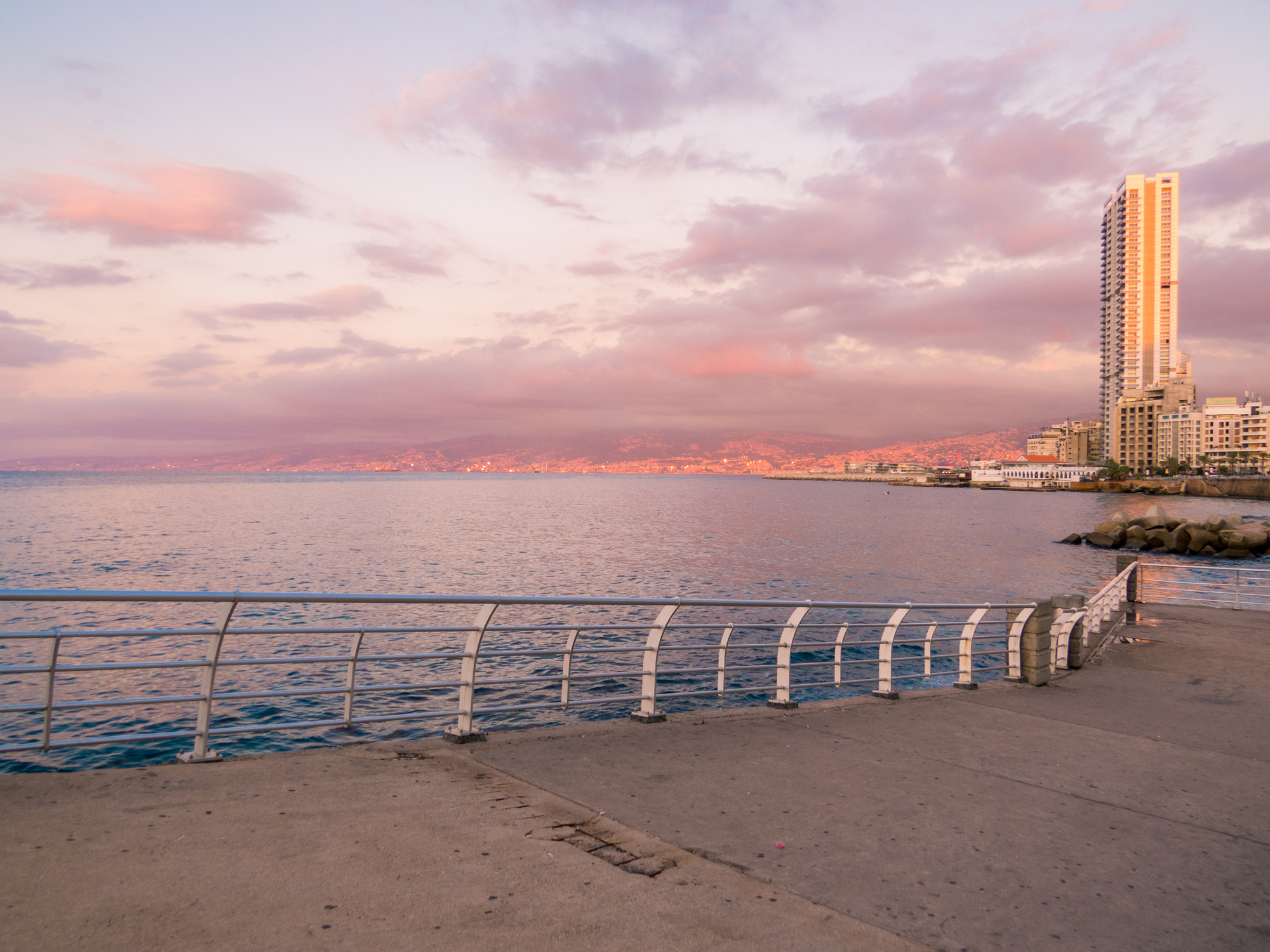
Middle East Business Telegraph Monitor – April 16
The top business/economic stories from the MENA region as reported in the regional and industry press – April 16
Lebanon Economy – “The IMF has projected that Lebanon’s gross domestic product will contract 12 percent in 2020, the largest contraction since the end of the country’s 15-year civil war. Lebanon is currently in the midst of ongoing financial and currency crises, and the coronavirus pandemic and subsequent lockdown has further damaged the country’s wilting economy. The country saw a 6.5 percent contraction in 2019, according to the International Monetary Fund’s World Economic Outlook titled ‘The Great Lockdown’ published in April. In 1990, the year Lebanon’s civil war came to a close, the GDP growth backslid 13.4 percent, according to IMF data,” Al-Arabiya English reports.
Regional – “Debt levels, unemployment and budget deficits will spike as the Middle East endures a coronavirus-led recession, piling pain on economies already hit by conflicts and an oil price slump, the IMF said on Wednesday. Almost all countries in the Middle East and North Africa will see their economies contract as they lose hundreds of billions of dollars in revenues, the global lender said,” AFP/Jordan Times reports.
Saudi Arabia Bonds – Saudi Arabia’s Ministry of Finance (MoF) announced that the kingdom’s bond sale to raise $7 billion has been heavily oversubscribed. The dollar-denominated bond was more than 7 times oversubscribed with total orders amounting to more than $54 billion, MoF said in a statement. The kingdom has issued a total of $7 billion, consisting of three tranches,” Zawya reports.
Aviation/Etihad – “Etihad Airways will operate a reduced network of scheduled passenger flights from May 1 to June 30, subject to UAE government travel restrictions being lifted, and the carrier aims to gradually return to full schedule as controls are lifted globally. ‘The monumental challenges being faced by all airlines, and our customers, have been beyond measure,’ Tony Douglas, group chief executive, Etihad Aviation Group, said in a statement on Thursday. ‘However, we remain cautiously optimistic and will push ahead with our plans to resume normal flying, while striving to better serve and support our customers and our employees,'” The National reports.
Egypt Economy – “The International Monetary Fund’s (IMF) Director of the Middle East and Central Asia Department Jihad Azour said on Wednesday that the economic reform program Egypt launched prior to the coronavirus pandemic has helped it absorb economic shocks, uplift economic growth rates, and boost the country’s banking sector. Azour said that the tourism and export sectors, as well as Egyptian expat remittances, which are a key source of hard currency for the country, are the most affected by the crisis,” Ahram Online reports.
UAE/China – “The ongoing coronavirus pandemic will likely be a catalyst for Dubai and the UAE to diversify its supply chain beyond China, with which it has been largely reliant, according to a senior official from the Dubai Future Foundation (DFF). At the moment, China is the UAE’s leading trade partner, accounting for more than 9 percent of the UAE’s non-oil trade. According to Peter Noack, the DFF’s executive director for future foresight and imagination, the Covid-19 pandemic and supply chain disruptions from China may lead to the UAE and other countries re-assessing the diversify of its suppliers and trade partners,” Arabian Business reports.
Oil Demand – OPEC on Thursday again slashed its forecast for global oil demand this year due to the coronavirus outbreak and said the reduction may not be the last. The Organization of the Petroleum Exporting Countries now expects global demand to contract by 6.9 million barrels per day, or 6.9%, in 2020, it said in a monthly report. Last month, OPEC expected a small increase in demand of 60,000 bpd,” Reuters reports.
GCC Oil/India – “India will divert 19 million barrels of Gulf oil from state-run firms to strategic petroleum reserves (SPRs), skipping direct purchases from producers to help refiners get rid of extra oil as their storage is full, three sources said. India’s decision to divert cargoes meant for state refiners will not soak up excess oil from the market following the demand collapse caused by the coronavirus pandemic, but it will help local companies to avoid demurrage charges at a time of expensive freight,” Reuters/Arab News reports.
Iran/Covid-19 – “Iran’s official death toll from the new coronavirus rose by 92 to reach 4,869 on Thursday but a parliamentary report said the actual number could be much higher. Health Ministry spokesman Kianush Jahanpur, speaking on state television, also said the total number of cases of people infected with the coronavirus has reached 77,995. However, a report by the Iranian parliament’s research centre suggested that the coronavirus tolls might be almost twice as many as those announced by the health ministry,” Reuters reports.
Iran – “Almost five billion dollars of the Islamic Republic’s money is missing, says the Director of the Supreme Audit Court of Iran (SAC), Adel Azar. Based on the official rate of 42,000 rials for one dollar, the Islamic Republic government distributes billions of cheap dollars among local importers to buy essential goods from overseas. Many of these importers are politically well-connected individuals,” The Baghdad Post reports.
Tunisia Economy – “Tunisia’s vital tourism sector could lose $1.4 billion and 400,000 jobs this year due to the coronavirus pandemic, an official document showed, as the country seeks a loan guarantee from bilateral partners to issue sovereign bonds this year. In a letter sent to the International Monetary Fund (IMF) that was reviewed by Reuters, Tunisia’s central bank governor and finance minister said the country’s economy would shrink by up to 4.3 percent, the steepest drop since independence in 1956,” Reuters/Arab News reports.
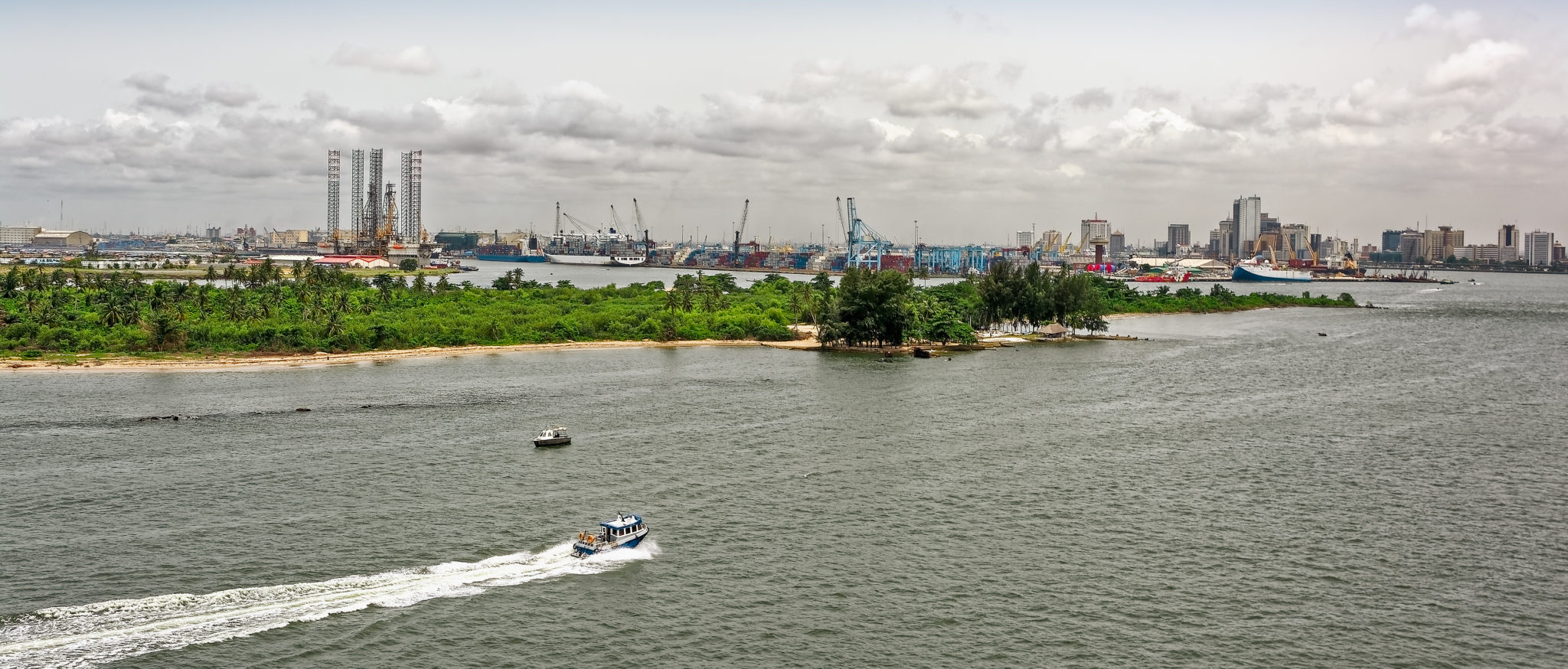
Africa Commercial Telegraph Weekly – April 15
Top business stories from Sub-Saharan Africa from the pages of the regional press – April 15
Regional Forecast – “The global coronavirus pandemic is going to send Africa into its first recession in 25 years, as economies get battered by lockdowns. According to the World Bank Africa’s Pulse report, the continent’s economic growth will also drop from 2.4 per cent in 2019 to between -2.1 to -5.1 per cent in 2020, impacted by the virus outbreak,” The East African reports.
Regional/Covid-19 – “In a report to be released later this week, the UN Economic Commission for Africa (UNECA) outlines different scenarios and outcomes as well as the impact the Covid-19 pandemic has had across the continent. The detailed report estimates 300,000 deaths in a best case scenario and 3m in a worse case one. In a call with African Business where a preview of the report was presented, the authors said they thought that the death estimate would be lower given the early and intense interventions taken by African governments,” African Business reports.
Nigeria Economy – “The International Monetary Fund (IMF) on Tuesday projected Nigeria’s economy would contract by -3.4 percent in 2020 from 2.2 percent in 2019. The Washington-based Fund expects the economy to grow by 2.4 percent in 2021. The International Monetary Fund (IMF) on Tuesday projected Nigeria’s economy would contract by -3.4 percent in 2020 from 2.2 percent in 2019. The Washington-based Fund expects the economy to grow by 2.4 percent in 2021,” Business Day reports.
Uganda Economy – “Uganda could emerge from the COVID-19 crisis as the most resilient compared to the other countries in the region, the International Monetary Fund (IMF) has said. In the latest report of the global outlook for 2020, the IMF says Uganda’s growth will be 3.5% this year down from 5% in 2019. This is far better than Kenya’s that will drop from 5.6% in 2019 to 1% this year. Tanzania will only grow at 2% this year after dropping from 6.3% last year,” The Independent reports.
South African Airways – “Regional carrier South African Airways could be one of the first victims of the storm that has hit the global airline industry as it has been denied any further funding by its government owner. The national carrier must now look for other ways to recover from the coronavirus crisis and a local form of bankruptcy protection. SAA’s external debt is guaranteed by the state in the event of the carrier’s collapse,” Business Day reports.
Ethiopian Airlines – “Ethiopian Airlines on Tuesday announced it had lost $550 million in revenue since January attributable to the coronavirus pandemic. Ethiopian Airlines CEO, Tewolde Gebremariam, said the airlines were forced to suspend passenger flights to 91 international destinations due to the global pandemic,” The East African reports.
Zambia/IMF – “Zambia’s only option is to seek a bailout from the International Monetary Fund (IMF) as years of excessive borrowing coupled with the effect of the coronavirus pandemic have left it struggling to pay its debts, the main opposition leader said. The country’s eurobonds have been among the world’s worst performing this year and its currency has depreciated by 23% against the dollar as the global Covid-19 pandemic halts supply chains, forcing down the price of copper that accounts for most of Zambia’s exports. The economy will shrink by 3.5% this year, according to the IMF,” Business Day South Africa reports.
Zimbabwe/IMF – “The International Monetary Fund (IMF) executive board has approved an immediate debt service relief to 25 member countries as part of measures to alleviate the economic impact of the deadly coronavirus. Zimbabwe is not on the list of beneficiary countries having cleared its US$108 million arrears in 2016 and is now working on clearing about US$2.2bn owed to the World Bank and African Development Bank,” Zimbabwe Chronicle reports.
South Africa Economy – Covid-19 has had a sudden and catastrophic effect on the global economy and South Africa has not been spared. The International Monetary Fund (IMF) expects the global economy to contract sharply by –3% in 2020, which is much worse than during the 2008–2009 financial crisis. The South African Reserve Bank said on Tuesday that it expects the country’s gross domestic product (GDP) in 2020 to contract by 6.1%, compared with the -0.2% estimated just three weeks ago when the bank’s Monetary Policy Committee (MPC) last met. GDP is then expected to grow by 2.2% in 2021 and by 2.7% in 2022,” The Mail and Guardian reports.
Cities – “As part of its analysis to inform COVID-19 policy responses, the UN Economic Commission for Africa (ECA), calls for adequate consideration of the vulnerability of city economies as African governments consolidate efforts and define stimulus measures to mitigate national and regional economic impacts. As engines and drivers of economic growth, cities face considerable risks in light of COVID-19 with implications for the continent’s resilience to the pandemic,” states Thokozile Ruzvidzo Director of the Gender, Poverty and Social Policy Division of the ECA. Africa’s cities are home to 600 million people and account for more than 50% of the region’s GDP. This is even higher at more than 70% for countries such as Botswana, Uganda, Tunisia and Kenya. A third of national GPD (31%) comes on average from the largest city in African countries. As such, the economic contribution of cities in the region is far higher than their share of population,” New Business Ethiopia reports.
Humanitarian – “The UN World Food Programme (WFP) has selected Addis Ababa as a humanitarian shipment hub for Africa to distribute medical supplies with Ethiopian Cargo. The first cargo flight arrived in Ethiopia on April 13 from the United Arab Emirates (UAE) loaded with aprons, face shields, gloves, goggles, gowns, masks and thermometers procured by the World Health Organization (WHO) for distribution to 32 African countries. In association with UN WFP, the government of Ethiopia opened a new hub inside Bole International Airport from which Covid-19 supplies, equipment, and humanitarian workers will be transported by air across Ethiopia and Africa,” Logistics Update Africa reports.
Africa 2021 – “Africa is expected to reverse an economic contraction linked to the coronavirus crisis next year after containment measures are eased, the International Monetary Fund said, but the impact will be felt for years to come. Sub-Saharan Africa’s gross domestic product is on track to shrink this year by 1.6% — its worst performance on record — because of the combined effects of the disease and plummeting oil and commodities prices. That is around 5.2% lower than the IMF’s pre-pandemic forecast,” Reuters reports.
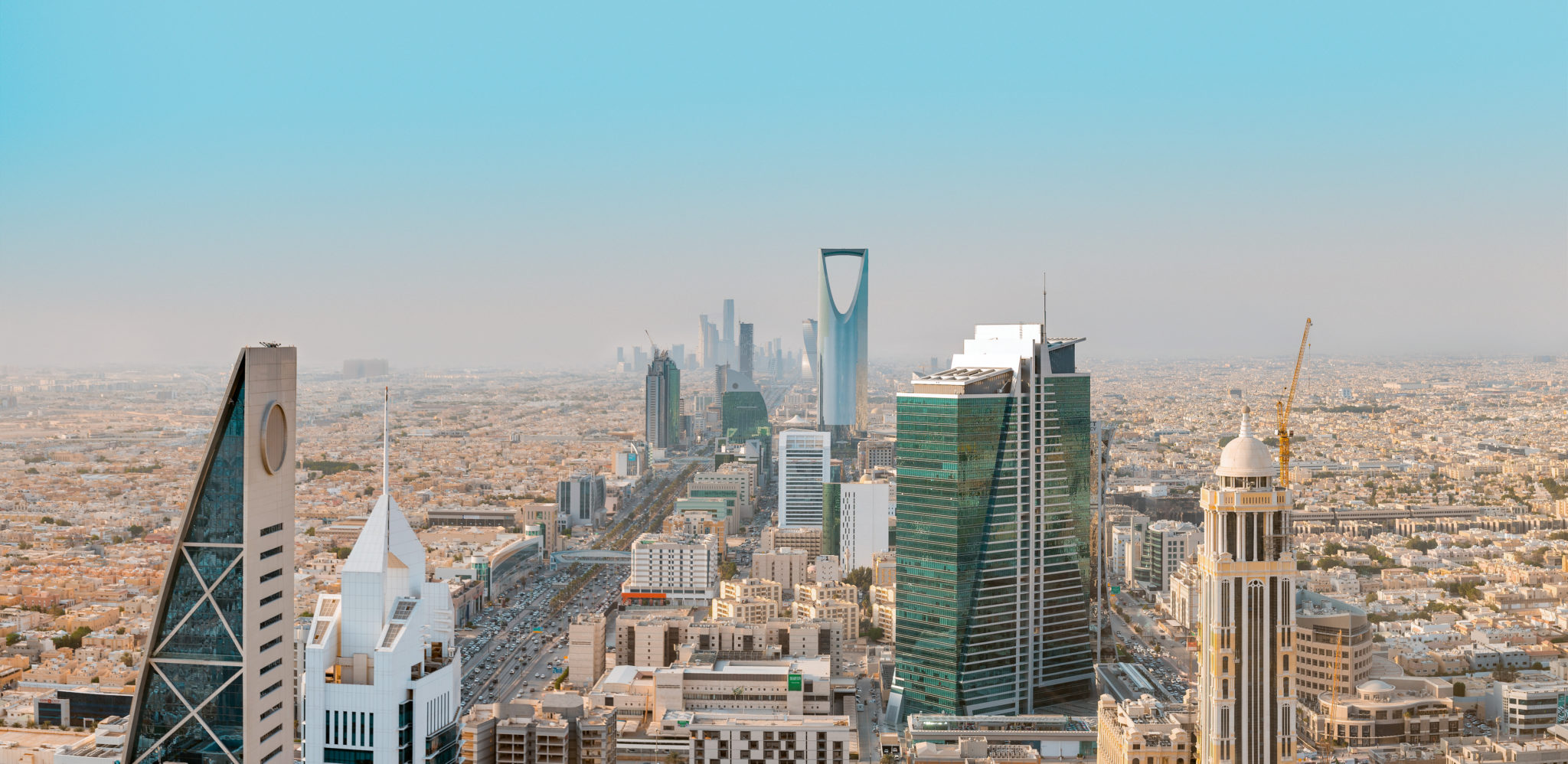
Middle East Business Telegraph Monitor – April 15
The top business/economic stories from the MENA region as reported in the regional and industry press – April 15
Regional Outlook – “The Middle East and North Africa economy will contract by 3.3 percent this year, the biggest slump in four decades, hammered by the coronavirus and low oil prices, the IMF said on Tuesday. In its World Economic Outlook, the International Monetary Fund said that the damage would be much worse than the region’s last major shock, the 2008-09 global financial crisis, when it managed to post modest growth,” AFP/Arab News reports.
Oil Price – “Oil fell 4% towards $28 a barrel on Wednesday, pressured by reports of persistent oversupply and collapsing demand due to global coronavirus-related lockdowns and a lack of coordinated oil purchases for strategic storage. The International Energy Agency (IEA) on Wednesday forecast a 29 million barrel per day (bpd) dive in April oil demand to levels not seen in 25 years and said no output cut could fully offset the near-term falls facing the market,” Reuters reports.
Shipping/Hormuz Security – “A Hong Kong-flagged handy product tanker at anchorage in Fujairah was boarded by armed men yesterday and told to head to Iran, a flare-up of tensions in the Strait of Hormuz not seen for a number of months. Security consultants Ambrey report that four skiffs carrying armed personnel came alongside the ship moored in the vicinity of Fujairah Outer Anchorage and ordered the crew to lower a ladder, then embarked. Prior to the incident, the handysize tanker had been displaying on AIS that it was destined for Al Jubail, Saudi Arabia. However, this destination was then changed to Iran. The vessel then moved within three nautical miles of the port of Kooh Mobarak, Iran,” Splash247 reports.
Libya Economy – “The forced decline in oil and gas production has caused the loss of more than $ 4.1 billion USD since January 17th, with current oil production in Libya down at 80,510 barrels per day, the National Oil Corporation (NOC) has said,” The Libya Observer reports.
Iran/IMF – “The International Monetary Fund is still assessing Iran’s request for $5 billion in emergency financing in a process which is taking time partly because of the IMF’s limited engagement with Tehran in recent times, a senior IMF official told Reuters. Iran, the Middle East country worst affected by the new coronavirus outbreak, approached the IMF last month to request the $5 billion from its Rapid Financing Initiative, an emergency programme that aids countries faced with sudden shocks such as natural disasters,” Reuters reports.
GCC Bonds – “The bond market in the GCC remains resilient despite the coronavirus pandemic, with issuance from the region likely to top $100 billion this year, according to Franklin Templeton. The fund manager, which at the beginning of this year forecast issuance by Gulf sovereign and corporates entities would hit $95bn this year, has revised its estimate higher to $105bn, Mohieddine Kronfol, chief investment officer for global sukuk and Mena fixed income, told a media conference call on Wednesday. Any local currency issuance, which stood at $40bn last year, would be in addition to foreign currency deals, he noted,” The National reports.
UAE/NMC – “ADCB has initiated criminal legal proceeding with the Attorney-General in Abu Dhabi against a number of individuals in relation to NMC Health Group, the UAE’s largest healthcare operator…The charges relate to a missing $4 billion plus that was taken out by NMC Health from local and international banks — and without any of that amount figuring in the company’s books,” Gulf News reports.
Oman – “Oman told ministries and other government units to cut spending further and announced measures to support the private sector and safeguard Omani jobs from the impact of the coronavirus outbreak, state media said on Wednesday. The finance ministry directed all ministries and civilian government units to reduce approved liquidity for development budgets by 10%. It said state companies would no longer be set up for business activity, giving priority to the private sector,” Reuters/Zawya reports.
Iran/Hotels – “The new coronavirus disease, also known as COVID-19, has inflicted 30 trillion rials ($187 million) in losses on hotels, the Iranian Hoteliers Association estimates. Hotels in Iran, in addition lodgings and guesthouses, have had to shut down since the spread of COVID-19, as they were among the first to be affected by the outbreak,” Financial Tribune reports.
Saudi/Newcastle Utd – “A potential takeover of English Premiership side Newcastle by a Saudi Arabian-backed group appeared to move closer on Tuesday after legal documents were lodged with the UK’s regulator of companies. But several other proposed bids to buy the club from Mike Ashley have all come to nothing during the controversial British businessman’s 13 years as owner of the northeast side,” Arabian Business reports.
Egypt Economy – “It wasn’t unexpected, but the ban on visitors to Egypt’s famed Pyramids amid the coronavirus pandemic still came as a shock to souvenir vendor Sayed el-Gibri and other tourism workers. As the virus spread, the government stepped up preventive measures, culminating in a ban on all international flights in and out of the country. There was little el-Gibri could do. ‘Everything collapsed in a flash,’ he said as he stared at the almost empty ancient complex in Giza, just outside of Cairo. The worldwide pandemic could financially drown the vulnerable in Egypt. The partial lockdown threatens the livelihoods of many of Egypt´s 100 million residents, one of three of whom were already living in poverty, according to government figures,” Asharq Al-Awsat reports.
Egypt/Wheat – “Egypt, the world’s largest wheat buyer, bought a smaller quantity of wheat than anticipated on Tuesday at a rare international purchasing tender held as the country’s local buying season of the grain begins. The state grain buyer said on Tuesday it bought 120,000 tonnes of Russian wheat as the country looks to bolster its strategic reserves amid the coronavirus outbreak,” Ahram Online reports.
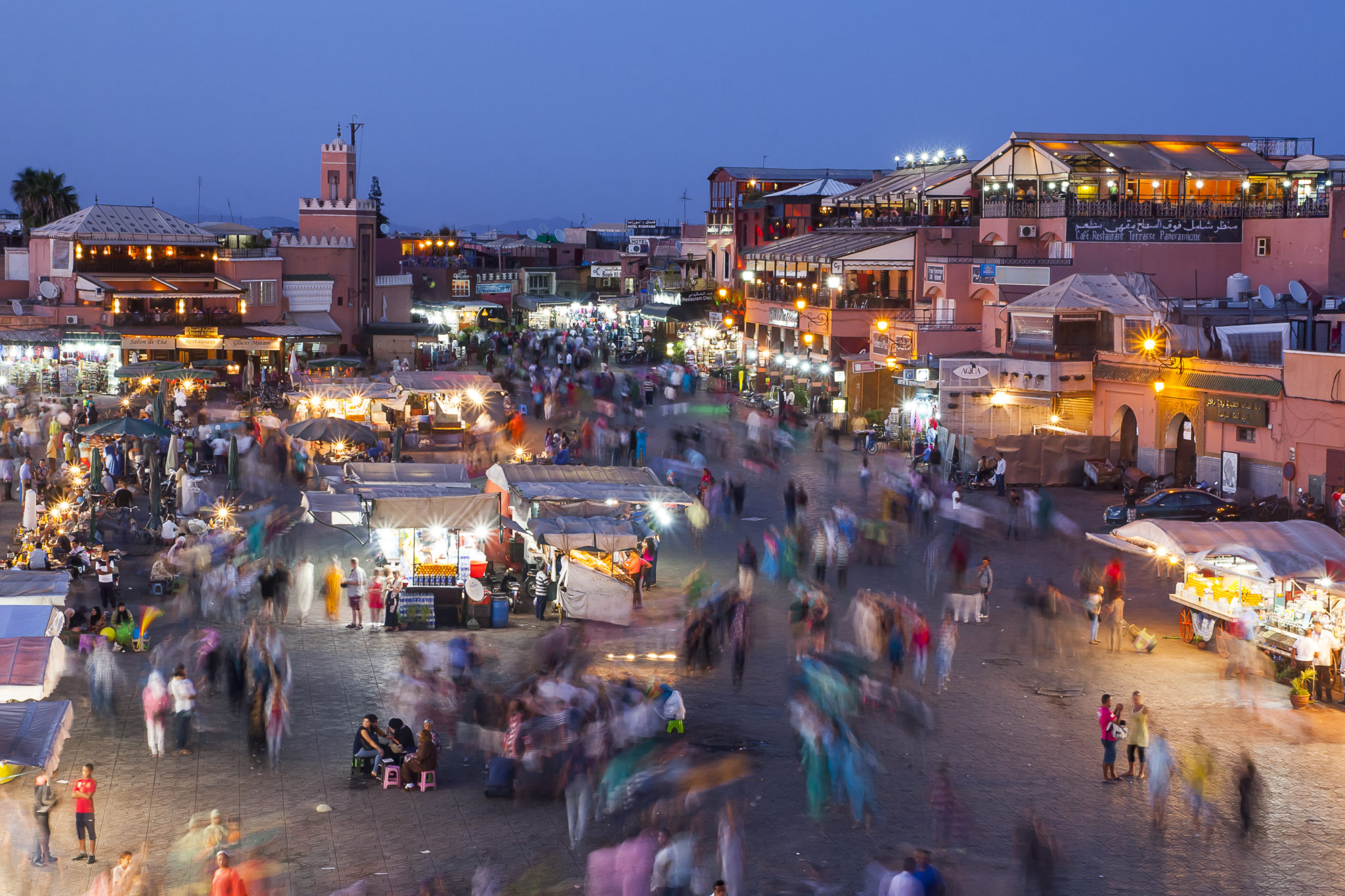
Middle East Business Telegraph Monitor – April 14
The top business/economic stories from the MENA region as reported in the regional press – April 14
Morocco – “State fund CDG said that the losses due to coronavirus could amount to $5.4 billion with Morocco expecting a recession in 2020,” The North Africa Post reports.
Bahrain/Investcorp – “Investcorp, a Bahrain-headquartered global alternative investment manager, has announced the first closing at $275 million, of its Asia food brands private equity platform. The platform is jointly owned and managed by Investcorp, China Resources, one of the world’s largest owners and distributors of food brands in Greater China and Fung Strategic Holdings Limited, a member of Fung Investments, the private investment arm of the families of Victor and William Fung,” Asharq Alawsat reports.
Saudi Arabia/E-Commerce – “Online payments in the Kingdom jumped by more than 400 percent in the first quarter of 2020 compared to the same period last year, the Saudi Press Agency (SPA) reported — an indication of a significant shift toward online shopping in the wake of the COVID-19 crisis. The number of online payments reached 7.3 million, valued at SR1.79 billion ($475.81 million),” Arab News reports.
Oman/Budget – “Oman’s finance ministry has told all government agencies to cut their operating budgets by at least 10 percent this year to counter a slide in oil prices, including by reviewing salaries and benefits. The move comes after the government cut the budget allocated to government agencies for 2020 by 5 percent last month in response to the financial challenges the oil-exporting nation faces,” Reuters/Al-Arabiya reports.
Syria/Remittances – “As much of the world remains confined to their houses, Syrians in the diaspora are struggling to generate income and find ways to send money back home. ‘I’ve been trying to send my family $300 for weeks now, but can’t figure out how,’ a Syrian from Damascus who is living in Jordan and asked for their name not to be mentioned told Syria Direct. Usually, the Damascene would ask a friend traveling to Syria to transport the money for them, but after the closure of the Syria-Jordan border crossing, that is no longer an option,” Syria Direct reports.
Iran/Covid-19 – “Iran’s death toll from the new coronavirus outbreak in the country has reached 4683, Health Ministry spokesman Kianush Jahanpur said in a statement on state TV. Ninety-eight people have died in the past 24 hours, he said,” Reuters reports.
UAE/Aviation – “Air Arabia and Etihad have no plans to delay the launch of a low-cost Abu Dhabi-based airline in a joint venture – but the timing will depend on market conditions, an Air Arabia spokesman said on Tuesday. Air Arabia Chief Executive Adel Ali said in November that the airline would be operational in the second quarter of 2020. However, the new coronavirus outbreak has since brought international travel to a near halt,” Reuters/Gulf News reports.
UAE/Retail – Dubai-based retail giant Majid Al Futtaim, which operates Mall of the Emirates, has waived rent fees for its tenants for the duration of the Covid-19 government mandated store closures. In a statement to Arabian Business, it said it is keen to help retailers retain working capital while the shopping malls are closed,” Arabian Business reports.
Jordan – “Jordan’s banks responded to central bank calls to cut interest rates charged to small and medium sized firms and individuals feeling the effects of the coronavirus crisis on Monday with a 1.5 per cent reduction from the end of April. Monday’s interest rate move announced by Jordan’s Banking Association, which represents commercial banks, follows prodding by the central bank after monetary authorities cut key benchmark interest rates in mid-March to 2.5 per cent from 3.5 per cent,” Reuters/The National reports.
Regional/Sukuk – “The sukuk market will see a significant reduction in issuance volumes in 2020. The drop in oil prices and restrictions related to the COVID-19 pandemic will take a toll on important sectors in core Islamic finance countries, including in real estate, hospitality, and consumer-related businesses, S&P Global Ratings noted yesterday The rating agency believes that government measures will result in lower issuance from both corporate entities and central banks. In addition, most government issuers may turn to conventional bond markets rather than issue sukuk as they grapple with the impact of weaker economic environment on their budgets,” The Peninsula reports.
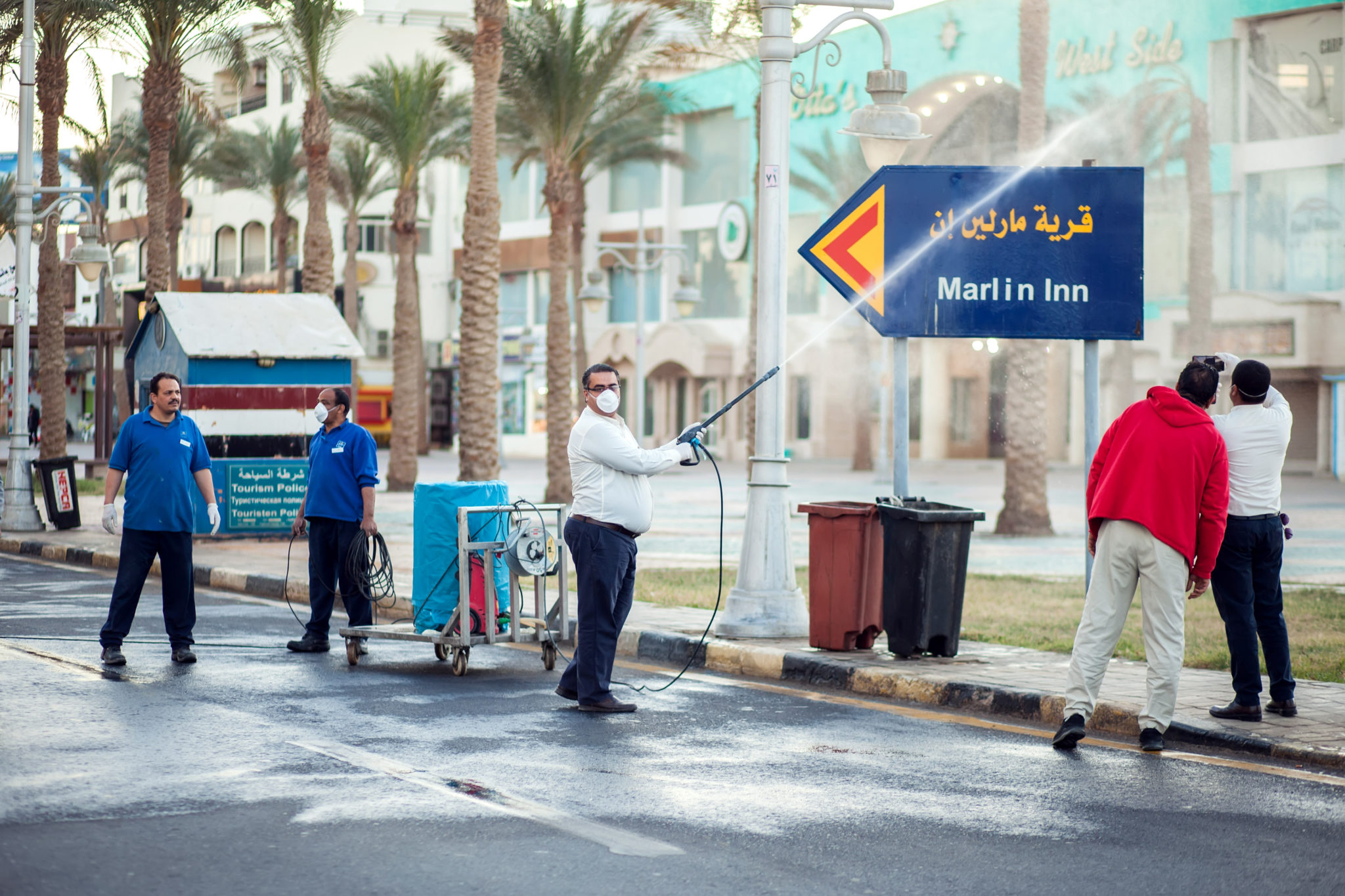
Middle East Business Telegraph Monitor – April 11-13
The top business/economic stories from the MENA region as reported in the regional press – April 11-13
Egypt/Tourism – “Egypt’s Minister of Planning Hala El-Said said on Monday that tourism revenues in the current fiscal year (2019/2020) are expected to reach about $11 billion instead of the $16 billion expected before the outbreak of the coronavirus. The minister did note, however, that a degree of growth rate recovery is expected by the second half of the upcoming fiscal year,” Ahram Online reports.
Oil Prices – “The minimal impact on oil prices from a global deal for record output cuts showed that oil producers have a mountain to climb if they are to restore market balance as the coronavirus shreds demand and sends stockpiles soaring, industry watchers said. After several days of deliberation, the Organization of the Petroleum Exporting Countries (OPEC) and allies led by Russia hammered out an agreement to cut output by 9.7 million barrels per day in May and June, equal to nearly 10% of global supply. Other major producers like the United States and Canada gave indirect commitments to cuts as well, playing up forecasts for drastic production declines in coming months due to the free-fall in prices,” Reuters reports.
Saudi Arabia/Ports – “The Saudi Ports Authority (Mawani) said on Monday it had signed an agreement worth more than $1.9 billion with Saudi Global Ports (SGP) to build and operate container terminals at a port in Dammam. SGP will build, operate and transfer the container terminals on a 30-year contract. The project will increase the capacity at King Abdul Aziz Port in Dammam by more than 120 percent to reach 7.5 million containers and add more than 4,000 jobs in the ports and logistical sectors, the Saudi Minister of Transport Saleh Al-Jasser said,” Arab News reports.
Saudi/Egypt/Vodafone – “Saudi Telecom Co, the kingdom’s biggest telecoms operator, said on Monday it needed more time to complete processes related to a planned deal to buy Vodafone Group’s 55 percent stake in Vodafone Egypt. Saudi Telecom in January struck a preliminary deal to buy the stake for US $2.4 billion, seeking growth in the Arab world’s most populous nation,” Reuters/Egypt Independent reports.
Saudi Arabia – “Saudi Arabia’s oil revenue could decline by 145 billion Saudi riyals based on an oil price of $40 per barrel for the benchmark WTI crude, said Al Rajhi Capital in a report Monday. After multiple rounds of meetings, OPEC+ and other oil producing nations decided to cut oil production by record levels to help balance oil market. As per the decision, around 9.7 million barrels per day (bpd) will be cut, starting from 1 May 2020 for two months. Thereafter, from July to December 2020, the cut will taper to approximately 7.6 million bpd. From January 2021 to April 2022 the cut would be approximately 5.6 million bpd,” Zawya reports.
MENA Oil Consumption – “The Middle East’s consumption of oil products from gasoline to jet fuel will add to pressures on global oil demand for this year as countries led by the energy-dependent Gulf region face economic slowdown, extended lockdowns and an oil price crash that will slam budgets already constrained by the coronavirus pandemic. Demand for oil products in the region will drop by a record 2.9% this year, with jet fuel/kerosene consumption plunging 15% and gasoline use falling by almost 6%, according to latest estimates from S&P Global Platts Analytics. The region covering 14 countries including Saudi Arabia, Bahrain, the UAE and Iran had contributed to global oil demand growth in 27 of the past 29 years. This year, global oil demand is set to contract for the first time in 11 years,” S&P Global Platt’s reports.
UAE/NMC – “NMC Health, which has been placed under a UK court-appointed administration, announced on Monday the formation of a new board of directors that has been entrusted with the immediate priority of implementing corporate governance changes in the group.
Richard Fleming, Mark Firmin and Ben Cairns of Alvarez & Marsal Europe, the joint administrators, have appointed four new non-executive directors with broad international restructuring experience to provide more robust governance and oversee the work with the management teams in the individual NMC businesses,” Khaleej Times reports.
Iran/Covid-19 – “President Hassan Rouhani said the ban on inter-province travels placed to curb coronavirus transmission will be lifted on April 20, as Iran’s daily infection tally declines. During the meeting of the coronavirus taskforce chaired by Rouhani on Sunday, the president announced that restrictions on road trips across Iran’s 31 provinces will be removed starting next Monday, President.ir reported,” Financial Tribune reports.
Saudi/Asia Spot Price – “Saudi Arabia’s state oil giant Aramco has set the May price for its Arab light crude oil to Asia at a discount of $7.3 to the Oman/Dubai average, down $4.2 a barrel from April, according to a document seen by Reuters on Monday,” Reuters/Al-Arabiya reports.
Libya/OPEC – “OPEC is to exempt Libya from a plan to slow down oil production for a period of two months, starting next May, due to the production lost through the closure of ports and fields by pro-Haftar militias east of Libya,” Libya Observer reports.
Iraq/Electricity – “The Iraqi government on Sunday announced it was taking ‘measures’ regarding national electricity production in preparation for increased demand in the summer months ahead. Over 16 years after the fall of the Saddam Hussein-led regime, the Iraqi government is yet to address low electricity supply in the country. Baghdad meets a part of its demand by purchasing resources it needs to supply its power plants from its neighbors like Iran,” Kurdistan24 reports.
Algeria – Algeria faces economic and social turmoil if crude prices continue to collapse, experts have warned, with the oil-dependent country reeling from a year of popular protests, political turmoil and now, coronavirus. The North African country is an example of how hydrocarbon economies are likely to face unrest if oil prices remain at near two-decade lows due to the COVID-19 pandemic and a price war between key players Saudi Arabia and Russia,” AFP/Gulf News reports.

East Asia Business Telegraph Weekly – April 12
A weekly round-up of leading business/economic stories shaping East Asia from the pages of the regional press – April 12
Aviation/Air Asia – “The founders of AirAsia Group Bhd will not take salaries and its staff has agreed to an as much as 75% cut in pay due to the impact of the Covid-19 outbreak on the airline, its chief executive said late on Saturday. Tan Sri Tony Fernandes said in an Instagram post that he and Executive Chairman Datuk Kamarudin Meranun ‘will not be taking a salary during this period,’ while staff from across the business ‘have accepted temporary pay reductions of anywhere between 15-75%, depending on seniority, to share the impact this is having on our business.’ The budget airline has no incoming revenue and 96% of its fleet is grounded, Fernandes said,” Reuters/Edge Markets Malaysia reports.
Japan/Uniqlo – “Fast Retailing, owner of casual clothing chain Uniqlo, forecast a 44% fall in full-year (September-August) profit after the coronavirus outbreak hit sales in China and dealt a setback to its ambitions of conquering the U.S. and European markets. The pandemic briefly disrupted Uniqlo’s supply chain throughout China and forced it to shut over half of its 750 stores in the country, the company’s biggest growth market in recent years. ‘This is the biggest crisis for humanity since the end of the war,’ CEO Tadashi Yanai told a news conference on Thursday,” Japan Today reports.
China/Autos – “China’s passenger car market saw a strong month-on-month rebound in March as business resumption gained momentum amid further containment of the novel coronavirus epidemic. Retail sales surged more than 300 percent from February to 1.04 million units, and 90 percent of dealers were back on track for services and mostly online sales, the China Passenger Car Association said yesterday,” Shanghai Daily reports.
China/Hubei – “Chinese e-commerce giant JD announced it will invest more than 6 billion yuan ($849 million) in Hubei, the hardest-hit region by the COVID-19 outbreak on the Chinese mainland, over the next three years. The investment is part of a bid to help boost the economic recovery and development of local small and medium-sized enterprises in the area,” China Daily reports.
Shipping – “Container shipping companies are cancelling sailings and merging routes to cut losses and stay afloat amid a drop in demand and a worsening outlook for global trade because of the Covid-19 pandemic. The number of “blanked” or cancelled sailings rose last week from 45 to 212, according to a report by shipping consultancy Sea-Intelligence on Monday. The report added that the largest capacity withdrawal was from the Asia-Europe routes, where 29 to 34 per cent of capacity has been removed,” The South China Morning Post reports.
World Trade – “Global trade could plummet by a third this year due to the coronavirus pandemic, the World Trade Organization said Wednesday, warning the deepest recession ‘of our lifetimes’ could be on the horizon. ‘COVID-19 has completely upended the global economy and with it international trade,’ WTO chief Roberto Azevedo told reporters in a virtual briefing from Geneva. The global trade body was projecting that ‘trade in 2020 will fall steeply in every region of the world, and basically across all sectors of the economy.’ he said,” AFP/Jakarta Post reports.
S. Korea/Doosan – “Doosan Heavy Industries & Construction, as we know, is in deep financial trouble. The company, which has staggered through years of growing losses, has finally reached out to the government for help. Its ballooning debt level and lack of new contracts have taken a toll on the Doosan Group, the 15th largest conglomerate in Korea, with even distant affiliates taking hits to their credit ratings. For the past several years, good news has been hard to come by at Doosan Heavy Industries. Domestic energy policies have turned away from coal and nuclear power — historically, the construction firm’s bread and butter. Similarly, the international company has suffered from a global shift toward renewable energy sources and pivoted away from traditional ones.” Korea JoongAng Daily reports.
S. Korea/KIA – “Kia Motors Corp., South Korea’s second-biggest carmaker, is considering temporarily suspending some of its plants in the country later this month due to the fallout from the novel coronavirus pandemic, industry sources said Sunday. It is planning to halt operations of three factories — two in Gwangmyeong, south of Seoul, and one in Gwangju, 330 kilometers south of Seoul — from April 23-29, according to the sources. The company runs nine domestic manufacturing facilities, including one as a joint venture. The three plants produce most of Kia Motors’ export vehicles, including the Sportage and Soul,” The Korea Herald reports.
Indonesia/Coronavirus – “Indonesia has imposed curbs on public transport ahead of the annual exodus to home villages that marks the end of the Muslim fasting month of Ramadan, in a bid to slow the spread of the coronavirus, the government said on Sunday. About 75 million Indonesians usually stream home from bigger cities at the end of Ramadan, due this year at the end of May, but health experts have warned against a surge in cases after a slow government response masked the scale of the outbreak,” Reuters reports.
Taiwan – “If the Wuhan coronavirus (COVID-19) pandemic lasts beyond the summer, Taiwan could find it hard to see its economy grow by even just 1 percent, business leaders said Friday (April 10). Most forecasts from before the pandemic saw Taiwan’s Gross Domestic Product expand by at least 2 percent during 2020, though as the virus started affecting more countries, economists and institutes started adjusting the figure downward to just above or under 2 percent,” Taiwan News reports.
Aviation/Vietnam/Cambodia – Vietnam’s national flag carrier is divesting its stake in Cambodia Angkor Air and has also signed a contract to sell five aircraft. This information was revealed in post-audit notes to Vietnam Airlines’ audited 2019 consolidated financial statement released Friday, which explains how the company has been impacted by the Covid-19 epidemic this year,” VN Express reports.
Singapore/Digital Payments – “The coronavirus pandemic is likely to help drive digital payments’ adoption in Singapore, with non-cash payments expected to take a 54% market share in 2020, a report by GlobalData revealed. Coupled with the support of the government, cashless payments are expected to grow exponentially in the country, eventually taking more than half of market share at 61% in 2023,” Singapore Business review reports.
Philippines/Coronavirus – “The number of Covid-19 cases in the country soared to 4,648 as the death toll also rose to 297, with the highest number of deaths so far in a day – 50 — reported. In a virtual presser, Health Undersecretary Maria Rosario Vergeire said that as of 4p.m. Sunday (April 12), the Department of Health (DOH) reported 220 new cases (PH4,429-PH4,648),” Business Mirror reports.
Petrochemicals – “Energy traders have chartered at least ten clean tankers to load refined products — primarily the blendstock naphtha — in the Americas this month for shipment to Asia, where Covid-19 containment measures are loosening and petrochemical plants are starting up,” Argus reports.
